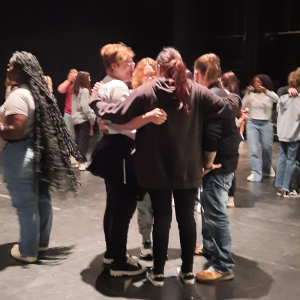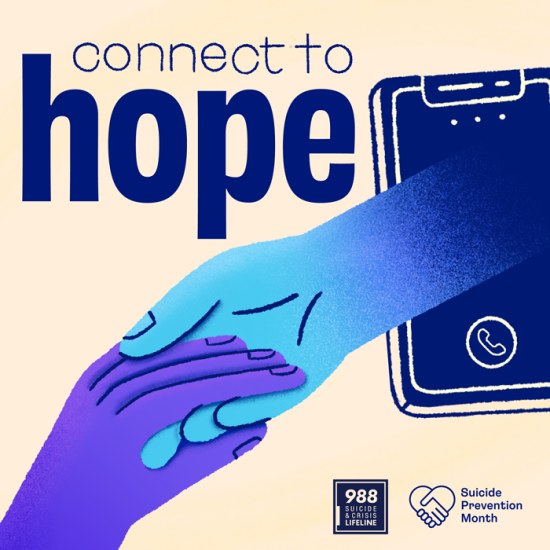Suicide Prevention Month: Spotlight on Clay County
Suicide is the eighth leading cause of death in Minnesota. While the number of suicide deaths decreased in 2020 from a record high in 2019, 2020 marked the sixth year in a row in which over 700 Minnesotans died by suicide. To help communities develop a comprehensive approach to preventing suicide, the Minnesota Department of Health (MDH) awarded Comprehensive Suicide Prevention Grants to three communities with high rates of suicide in 2019, and Wilder is helping to evaluate their efforts.
Communities are using the funds to supplement existing suicide prevention efforts in order to work across the spectrum, from well-being promotion and preventing risk to intervention, crisis response, and postvention (responding to a suicide death in the community). In recognition of National Suicide Prevention month, Wilder is highlighting the work of one of the community grantees, Clay County, and some of the key findings from this work so far.
What is Clay County doing to prevent suicide?
Promotion
- Training workplace wellness champions at numerous employers on practices that improve positive emotions, engagement, positive relationships, and sense of meaning and accomplishment.
Prevention
- Providing MDH’s Changing the Narrative training to build skills to talk openly about suicide and thereby reduce stigma and increase help-seeking. Participants said they gained skills or resources they can apply to both their personal and work life, including strength-based language to talk about mental health in a less stigmatizing way.
- Partnering with FirstLink to train teachers and school staff on suicide awareness. Participants described the sessions as eye-opening and urgently needed, and expressed appreciation for the information on warning signs and local resources.
- Creating a calming room at the Moorhead Alternative Learning Center for students who are feeling anxious and overwhelmed.
Intervention

- Helping local schools implement Sources of Strength to increase help-seeking and promote student connections to peer leaders and caring adults.
- Training community partners on how to use the Columbia-Suicide Severity Rating Scale to assess at-risk individuals.
Crisis response
- Working with community partners to improve crisis call response time.
Postvention
- Distributing a list of resources that can be shared with loved ones following a death by suicide.
Across this spectrum
Wilder and Clay County conducted a survey of New Americans to learn about their perceptions of mental health and well-being, who they would turn to for help, and to learn about existing mental health needs. This was followed by one-on-one conversations to learn about how to best raise awareness of mental health among New American communities. Respondents identified many barriers to accessing services, including a lack of cultural competence among providers, language barriers, and stigma. They recommended holding community events to raise awareness of mental health concerns while celebrating culture and finding creative ways to share personal stories without revealing identities. Findings were shared with community leaders, and used to develop a communications plan to raise awareness of services and plan for a training for New American leaders on how to encourage help-seeking.
What can other Minnesota communities do?
- Promote the new 988 Suicide and Crisis Lifeline, the new three-digit dialing code that provides 24/7 support to people in distress.
- Learn more about Changing the Narrative training by contacting the Minnesota Department of Health at health.suicideprev.MDH@state.mn.us
- Find resources and learn more about suicide prevention from Suicide Awareness Voices of Education (SAVE)
About the authors
Wilder Research’s Melissa Adolfson, research scientist, and Melissa Serafin, research associate, are co-leaders on the evaluation of the Comprehensive Suicide Prevention Grants. Both Melissas conduct research and evaluation at the state and community levels focused on mental and chemical health.
Rory Beil is the director of health promotion and Karen Nitzkorski is the suicide prevention coordinator for Clay County Public Health. Together they have more than 70 years of engaging hundreds of partners in sustainable health and wellness changes.
